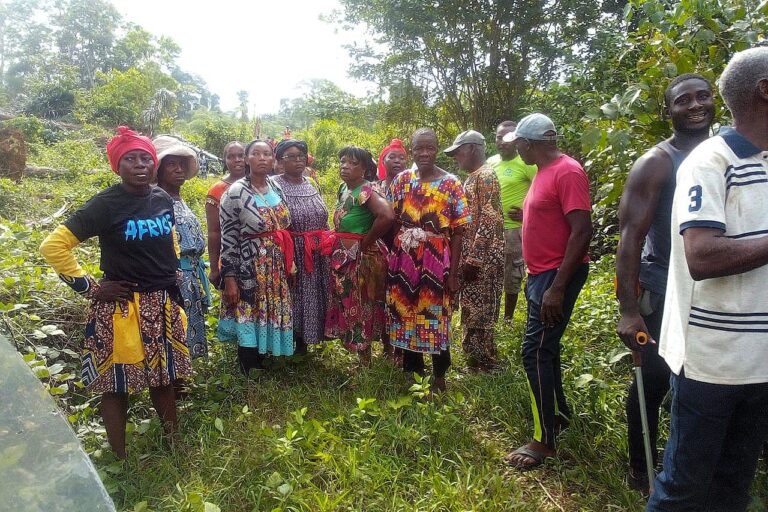- A Climate and Health Assessment presented at the White House by the US Global Change Research Program revealed wide-ranging climate change health impacts.
- Every American is vulnerable, but low income people, certain ethnicities, Indigenous people, the young, elderly, and pregnant women are disproportionately at risk.
- The report is meant to help policymakers generate and implement a proactive response to the many escalating and evolving health impacts due to climate change.

Climate change is already impacting human health and wellbeing in the US in multiple ways, and these impacts are forecast to increase in the future, according to a new report published this week.
The US Global Change Research Program’s (USGCRP) Climate and Health Assessment compiles the most up to date scientific evidence to assess and summarize the effects of rising temperatures and increasing levels of atmospheric carbon dioxide on human health.
“This report really changes the way we talk about climate change in the US,” Allison Crimmins, an environmental scientist with the US Environmental Protection Agency (EPA), and a co-editor of the Assessment, said at a White House briefing.
The impacts documented in the report, from air quality to mental health, nutrition to vector-borne disease, are wide-ranging. What’s more, “every American is vulnerable” to them, although certain groups — low income, certain ethnicities, Indigenous peoples, the young, elderly, and pregnant women — are “disproportionately vulnerable,” the report states. As the population ages, becomes more ethnically diverse, and develops greater wealth inequalities, more people are likely to experience climate change-driven health impacts.

The USGCRP examined the evidence from more than 1800 studies published between 2007 and 2014, distilling the key findings so that policy and decision makers can plan mitigation and adaptation strategies.
“[T]his is the first time… I think in history we’ve been able to really look at this and show that it’s not just about polar bears and melting ice caps, it’s about our kids, it’s about our families, it’s about our future. It’s about what our core value is, and what we do to meet our moral responsibility to our kids and that future,” said EPA administrator Gina McCarthy at the White House briefing.
“[E]very human being in every part of the United States is impacted now by climate and will get increasingly impacted if we do not take action now to try to reduce those impacts,” McCarthy added.

The past decade was the warmest on record for the US, and heavy rainfall, droughts, heatwaves and hurricanes increased in recent years. All are predicted to intensify in severity in coming decades, although exactly how this will play out depends on society’s actions today. If carbon dioxide emissions are cut, the worst effects might be avoided. The report “is a real wake-up call for innovating and investing in a low-carbon future today, and not waiting,” McCarthy stated.
Rates of illness and even death are predicted to increase due to a suite of climate change-related factors, and interactions between these factors could further compound their impact, or trigger cascading effects that are difficult to foresee, the report concludes. These effects will be further compounded by social determinants of health.
These influences include higher temperatures overall, as well as more extreme high and low temperatures, which are forecast to cause “an increase of thousands to tens of thousands of premature heat-related deaths in the summer.”

A reduction in air quality due to increased ozone and airborne allergens, and geographic and seasonal shifts of vector-borne diseases such as Lyme disease, transmitted by ticks, and West Nile virus, transmitted by mosquitoes, will also have health impacts.
The report also anticipates the emergence of new pathogens, as land-use changes, international travel, and climate change interact. Exposure to water contaminants is also expected to increase, as higher water temperatures benefit pathogens and toxin-releasing algae. Storm surges and heavy rainfall will compromise infrastructure and clean water supplies.
Pathogen and toxin exposure in the food supply is also expected to increase. And as pests and microbes increase due to the changing climate, the use of pesticide is predicted to rise, with associated health risks. Furthermore, higher levels of atmospheric carbon dioxide will reduce the nutritional value and mineral content of major food crops such as wheat and rice.

The Assessment also highlighted the mental health impacts of a changing climate. “[Climate change is] probably impacting how happy you are every day, and what your mental health status is,” McCarthy said.
The report outlined this link further: “The interactive and cumulative nature of climate change effects on health, mental health, and well-being are critical factors in understanding the overall consequences of climate change on human health.”
Extreme weather events can cause immediate stress, anxiety, and post-traumatic stress responses. Long term, witnessing changes to, and the loss of, local environments and natural resources — for communities with strong connections to them — can drive mental health conditions such as anxiety and depression. Extreme heat also disproportionately affects those already suffering from mental health conditions. According to the National Institute of Mental Health, 18 percent of the adult population (43.6 million people) suffered from a mental health condition in 2014.
The just released Climate and Health Assessment “provides a really comprehensive scientific foundation that will tell us what the damage is, [and] what the concerns are with public health and climate,” so policymakers can act, said McCarthy. “[I]t also challenges us to look at the costs associated with inaction, and what that means for the future of our kids.”
Citation
USGCRP (2016): The Impacts of Climate Change on Human Health in the United States: A Scientific Assessment. Crimmins, A., J. Balbus, J.L. Gamble, C.B. Beard, J.E. Bell, D. Dodgen, R.J. Eisen, N. Fann, M.D. Hawkins, S.C. Herring, L. Jantarasami, D.M. Mills, S. Saha, M.C. Sarofim, J. Trtanj, and L. Ziska, Eds. U.S. Global Change Research Program, Washington, DC, 312 pp. http://dx.doi.org/10.7930/J0R49NQX













